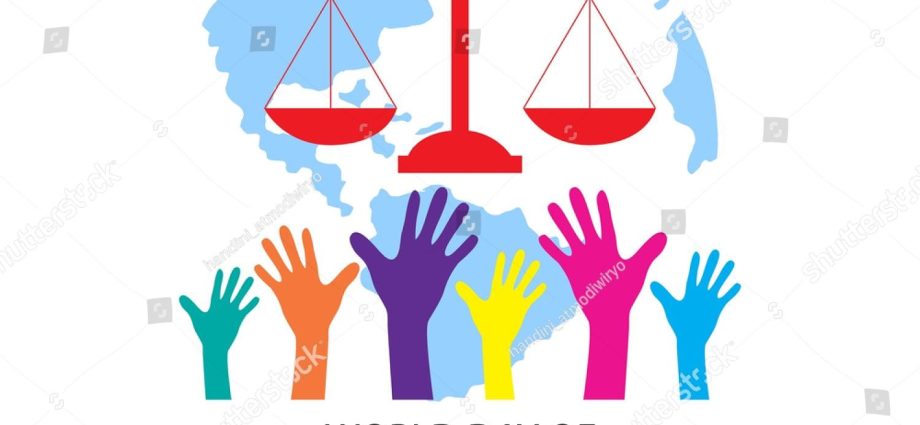By Stanislaus Alla
New Delhi, Feb 20, 2024: Cain’s classic and immortalized answer to God, ‘Am I my brother’s keeper’ reveals about himself, about his slayed brother Abel, and more importantly, of God’s care and responsibility for both of them and by extension, of the entire human family.
This primordial answer contains the obvious: God created Cain and Abel and they have no option but to be related and responsible.
Justice issues from this foundational experience, and, in one way or the other, most religions and spiritualities keep justice (dharma, ubuntu or other equivalents) at the center of their teachings and practices.
Confronting an insane and unjust world, Martin Luther King famously said ‘Injustice anywhere is a threat to justice everywhere’ and with tremendous hope, he also exclaimed” ‘The arc of the moral universe is long, but it bends towards justice.’
In 2007, the United Nations General Assembly declared World Day of Social Justice and said that it would be held annually on February 20. The theme assigned for this year is ‘Bridging Gaps, Building Alliances.’
Member states of the United Nations are asked to hold events and conferences around this theme, so that the theme of social justice percolates into the local, national and international policies and programs, discussions and conversations.
While the idea of justice is largely known, globally and in the Christian world (including legal justice and its multiple manifestations), social justice came into light in the 20th century. Popes Pius XI, John XXIII emphasized the importance of social justice as they fought for better working conditions for the workers and promoting just and family wages.
Profound and painful awareness of injustices and inequalities made justice a central global concern. Documents of Vatican II, and Popes since then, have been advocating for social justice at all platforms, secular and religious.
A distinction is normally made between legal justice and social justice: one is legally bound in the case of the former (if wronged, one can go to court) and in the case of social justice, one is morally bound. Consequently, even if not strictly legally, all of us are morally bound to become our ‘brother’s keepers,’ and try to become Good Samaritans by reaching out to the needy ones.
Not many may know that ‘Justice in the World’ is the first document to come from a world synod of bishops. Overcoming the dichotomy between faith and justice (at a time when many thought that it was possible to promote one and ignore the other) this 1971 document declared that “action behalf of justice and participation in the transformation of the world fully appear to us as a constitutive dimension of the preaching of the Gospel.”
It was nothing less than a paradigm shift.
Injustices and inequalities, poverty and corruption, discrimination and exploitation are present everywhere, if only one is willing to see. The United Nations challenges us to build a more inclusive and fairer world where contracts and agreements are made in a spirit of justice and solidarity. Unfortunately, in the contemporary world, several nations and peoples have no voice at all, to express themselves or to bargain.
Equally, trafficking of peoples and modern forms of slavery are to be confronted and eradicated.
The Indian Church has evolved and established many forums to promote social justice. While much progress is made in this regard, still there are many who do not see the link between faith and justice, and that they are inseparable. Sadly, even some members of clergy and religious are yet to explicitly bring justice into their apostolates.
Commenting on justice, Pedro Arrupe, former general of the Society of Jesus, said: “To be just, it is not enough to refrain from injustice. One must go further and refuse to play its game, substituting love for self-interest as the driving force of society.”
To begin with, inculcating the value of justice among the students and in the catechism is indispensable. Social justice is not only a virtue to be espoused personally but a principle that needs to be discussed and implemented in the systems and structures.

